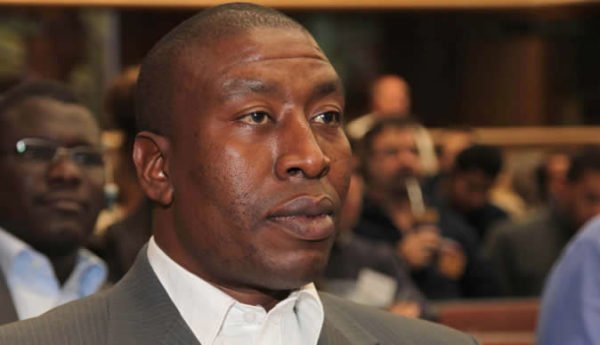CNRG director Farai Maguwu says artisanal mining in the country is a poverty-driven crisis and there is need for government to offer alternative livelihood options to local communities to stop the illicit trade.
The Centre for Natural Resources Governance (CNRG) director said people in communities were living miserable lives hence their decision to venture into risky artisanal mining.
However, the trade has seen police officers besiege gold mining areas hunting down the informal miners following a rise in machete attacks across the country.
Last week, armed police raided the gold-rich area of Penhalonga, northwest of Mutare where they arrested 186 illegal miners.
Police said the operation was meant to flush out illegal miners, sex workers, drug paddlers, and illegal shop operators who are reported to be fuelling illegal gold panning activities.
However, Maguwu said there was a need to find a holistic approach to stop artisanal mining.
“A holistic approach is needed. Artisanal mining is a poverty-driven issue. In Zimbabwe, it has been exacerbated by climate change and high unemployment,” he said.
Without offering alternative and sustainable livelihood options, Maguwu said the illegal panners will be back in the pits the moment they are released from custody.
“Government should proffer solutions and alternatives. Without offering alternative and sustainable livelihood options, they will be back in the pits the moment they are released,” he said.
Artisanal miners who managed to escape the police dragnet and spoke to this publication after the police operation said without an alternative livelihood option, they would continue to risk their lives by digging for gold ore in the pits and disused shafts in Penhalonga.
“We have families to feed, so the government should give us an option. We want the government to formalise artisanal mining so that we can eke out a living from our natural resources,” said Mike Rondozai, 34.
Richard Maruta, 43, weighed in, saying most of the artisanal miners were retrenched at a local mine and they no longer have any source of income instead of illegal mining.
“All the local mining companies that have capacity to provide employment closed long back. We are now destitute in our own land, but we are humans and we need to survive,” Maruta.
DTZ -Ozgeo mine was closed in November 2013 following a government directive to shut down all alluvial gold mining operations in the country that were mining along river beds while Redwing Mine also put a lid to its operations citing viability challenges. Both mines are in Penhalonga.
About CNRG
CNRG Exists To Ensure Natural Resources Are A Blessing And Not A Curse To The Host Communities. The Extractive Sector, Whilst Viewed As A Boom By Government And Corporations, Is In Reality Doom To Most Communities Who Have Fallen Victim To The Paradox Of Plenty. Mining Has Led To Somatic Violence, Deleterious Psychosocial And Health Impacts On Communities, Especially Women And Children. It Is Harmful To The Environment Especially Where There Are No Tight Regulations To Reduce Environmental Impacts Of Extractive Industries. The Government Of Zimbabwe Acknowledges That The Extractive Sector Is The Chief Architect Of Illicit Financial Flows From The Country.
NewZimbabwe
.png)




